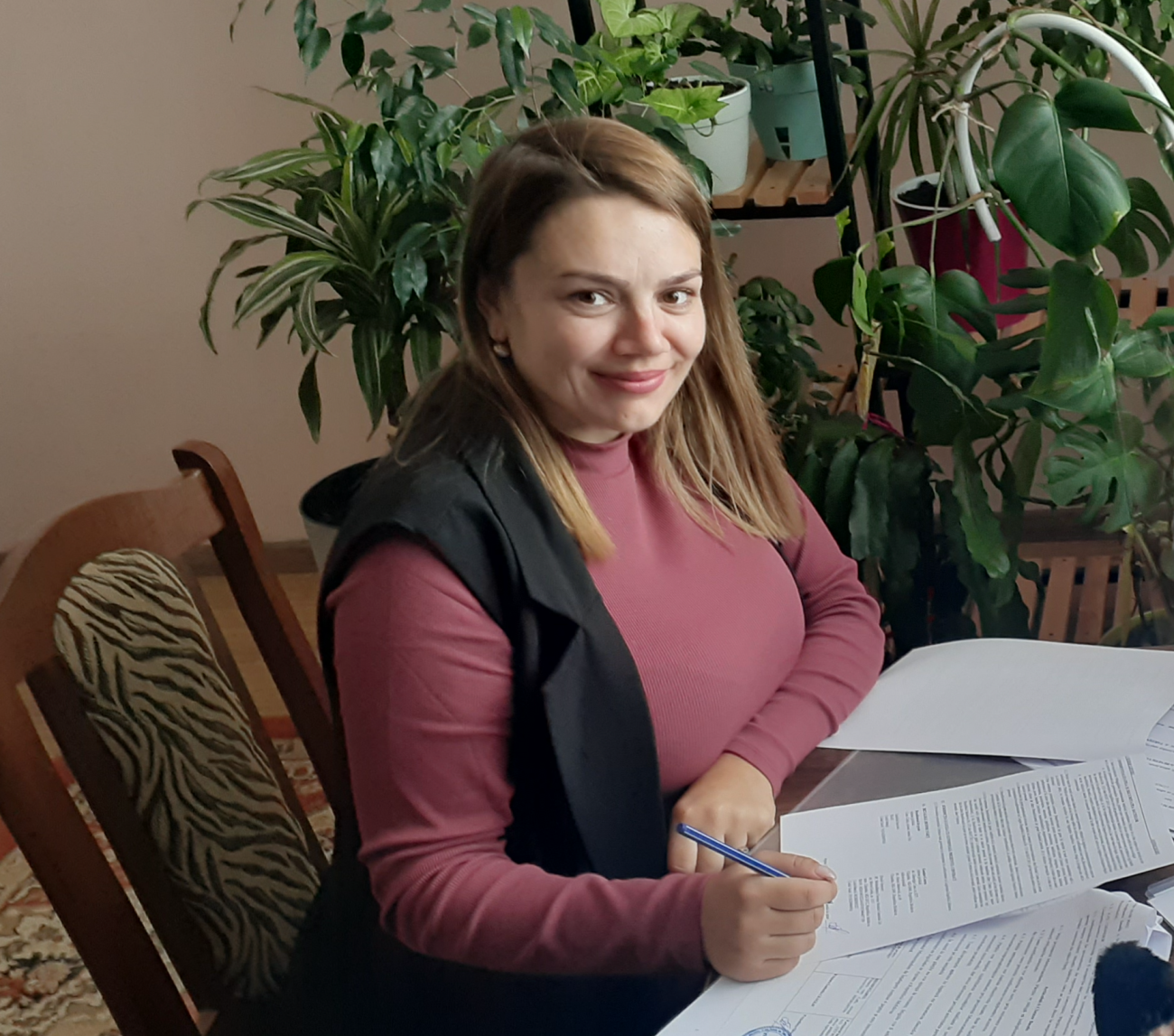Responding with care: Beauty services coupled with counselling for Ukrainian refugees in Moldova

Since the first day of the war in Ukraine, Anastasia Bacico has been actively involved in the refugee response in Hîrbovăț, Anenii Noi, a village in Moldova.
A 28-year-old from the local community, Anastasia studied as a foreign language interpreter, but her interest in civic engagement and community aid led her to begin a salon that offers free beauty services and psychological support for refugees and local women. The salon is run through the project “Feminist and localized humanitarian action”, supported by Gender Centru – a partner organization of UN Women that receives funding from the Women’s Peace and Humanitarian Fund (WPHF).
At the beginning of the crisis, Bacico’s main concern was to provide refugees with accommodation, food and personal hygiene products. But as time went on, she realized that the level of stress women refugees are under required something more. “Most men have remained in their country, and women are involved in an ongoing struggle here – they have to do their best to acquire food, hygiene products, clothing and various other services that they and their children need,” she said.
Bacico decided to act, and through the WPHF-funded project, she has been providing a space where Ukrainian refugees and local women can come to receive free psychological counselling and beauty services. Getting a haircut or a manicure helps them feel better and, in the process, they also receive psycho-emotional counselling.
WPHF currently provides financial support to 20 women’s rights and women-led organizations in Moldova. With this support, the organizations offer humanitarian assistance and protection to women and girl refugees, promote the leadership of women in the humanitarian response and build inclusive communities.
At a ceremony on 20 January 2023, marking the second round of funding offered, WPHF Secretariat head Ghita El Khyari highlighted how the narrative around women and women’s organizations—which in the past have not been considered legitimate humanitarian responders—is changing. She also highlighted the gendered dimensions of the refugee crisis, saying: “We know very well that women and girls comprise the large majority of those displaced by the war and that it aggravates pre-existing inequalities and vulnerabilities. We are very happy to see how host communities are able and willing to support displaced women and girls from Ukraine.”
To date, six women’s rights organisations and women-led organisations implemented projects funded by the Women's Peace and Humanitarian Fund, in which over 1,400 refugees received emergency assistance, around 600 women joined training and counselling sessions and 167 women took part in leadership programmes. In this context, 35 women and girls, both local and refugees, benefited from the project run by Anastasia Bacico.
More than that, Bacico’s project offers an opportunity for displaced women to be involved in the refugee response. The activities were designed with inputs from a local group of refugees, and several refugees volunteer at the salon.
Ana Vrabie who was born in Moldova, but moved to Odesa, Ukraine, a long time ago, is one of the refugees volunteering her services as a hairdresser. “Participating in this project for me was like a breath of fresh air, as I do things I like, and I am glad to be useful to people and to at least bring a smile to their face,” said Vrabie.
The beauty salon offers a respite to both refugees and Moldovan locals. It is a place women can go to forget about their problems, even if just for a moment. It is also a space for local women and refugees to meet and talk.
“Along the way, we have had meetings with the psychologist, also interactive meetings where women could exchange a few words, get acquainted with other women, and have a good time together,” said Bacico. She highlighted, moreover, that these kinds of gatherings help women in managing their emotions and overcoming emotional exhaustion.
Bacico is motivated to continue her active involvement in aiding refugees and the local community as she sees the results and the smiling faces of the women and children to whom she has offered support.
UN Women Moldova Country Representative Dominika Stojanoska reflected: “As the war is ongoing, refugees are seeing that it might be a longer stay than they had initially hoped. So, this project enables us to make their stay less difficult.”




